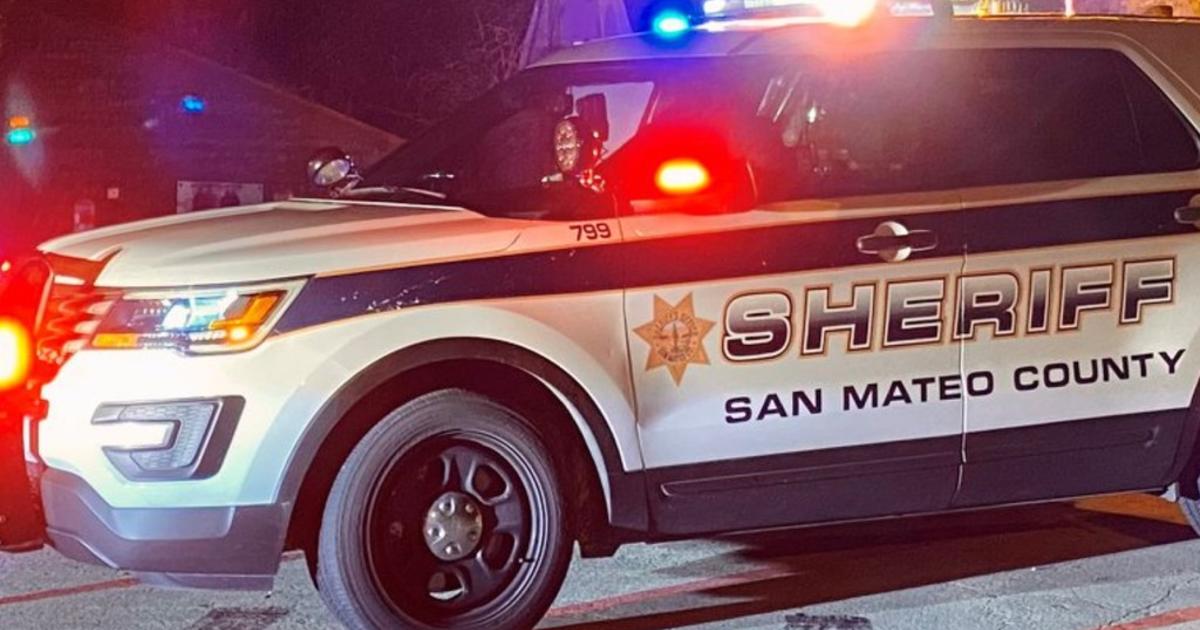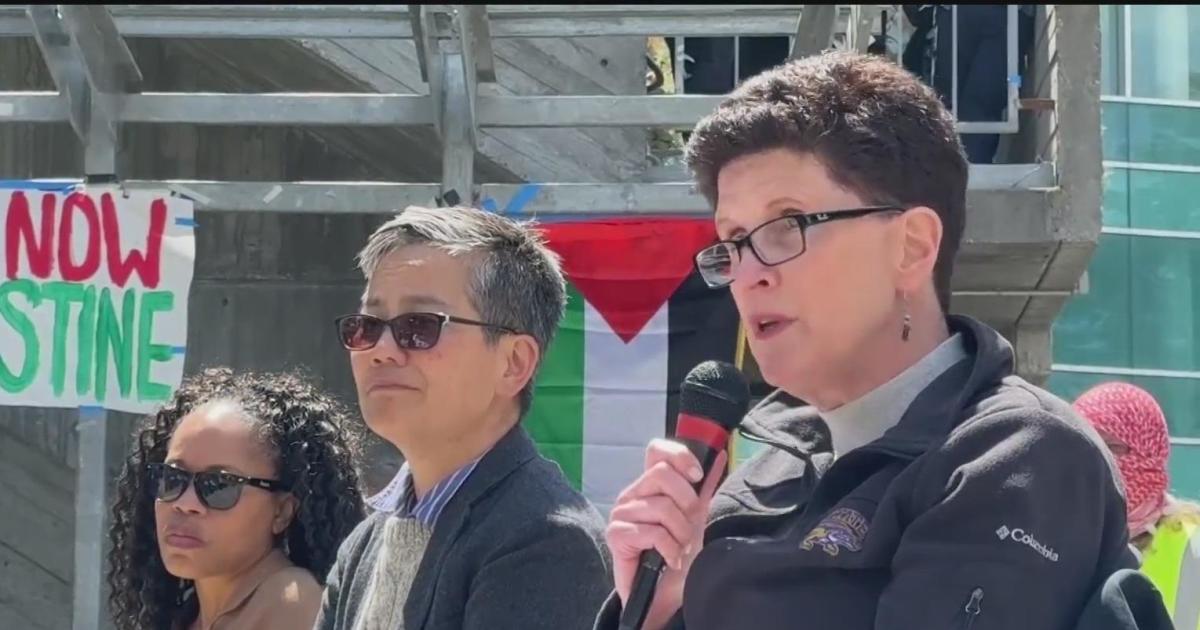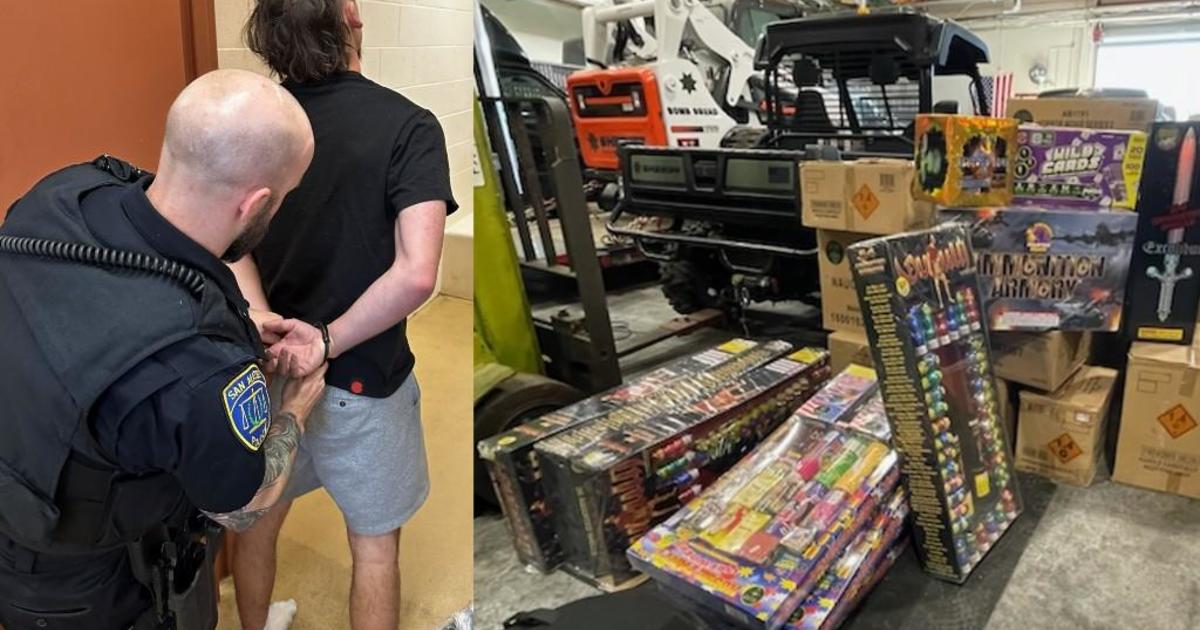Sen. Feinstein Blames NRA, Gun Makers For Derailing Assault Weapons Ban
SAN FRANCISCO (CBS/AP) -- The National Rifle Association and gun manufacturers are to blame for the "disconnect" between the broad public support for gun control and the reluctance in Congress to ban assault weapons and high-capacity ammunition magazines, U.S. Senator Dianne Feinstein said Wednesday.
Speaking to a hometown audience of about 500 people in San Francisco, the California Democrat said the NRA has intimidated senators with threats that the gun lobby would spend heavily to unseat them if they support the restrictions Feinstein championed in response to the December massacre at an elementary school in Newtown, Conn.
"A fear has set in that if they vote for the bill they won't be re-elected. It's that plain, it's that simple," Feinstein said during an appearance before the Commonwealth Club. "My view is they shouldn't go up to the Senate if they are unwilling to stand up and vote."
She did not mention any senators by name, but ticked off a long list of southern and western states, from Montana and Wyoming to Tennessee and Florida, where the threats would be most successful.
Senate Majority Leader Harry Reid last month stripped the assault weapons and ammunition bans from the gun-control legislation that Democrats plan to bring to the Senate floor in coming weeks. Reid said he was worried those provisions would doom any reforms, such as expanded background checks for gun sales, but assured Feinstein he would allow them to be voted on as amendments.
Senator Feinstein Won't End Fight To Ban Assault Weapons
Feinstein said she would press for a chance to speak on the Senate floor, where she plans to once more make the case that while military-style weapons are involved in a small percentage of gun deaths, the massacres and damage to individual bodies they can inflict "are antithetical to our values."
NRA spokesman Andrew Arulanandam rejected Feinstein's account of why her colleagues are not embracing her proposals.
"In spite of what Senator Feinstein is trying to spin, to try and put the blame on the NRA, the real reason that there is lack of support for these bans is because we had a 10-year period where these bans were the law of the land, and during that 10-year period numerous studies were conducted that found these bans were ineffective at reducing crime," Arulanandam said.
During her remarks earlier in the day, Feinstein had disputed the contention that the assault weapons ban she sponsored in 1994 did not reduce gun violence during the decade before it was allowed to expire.
"It had begun to do what we wanted it to do, which is to drive down the number of these guns over time," she said. "The NRA has their statistics, I have mine."
Feinstein also encouraged the entertainment and video game industries to take voluntary steps to produce products that do not glorify big, powerful guns before Congress feels compelled to step in. She mentioned that Adam Lanza, the 20-year-old man responsible for the Sandy Hook Elementary School slayings, practiced shooting both at a range with his mother and on a video screen.
Video games play "a very negative role for young people, and the industry ought to take note of that," she said. "If Sandy Hook doesn't do it, if the knowledge of these video games this young man played doesn't, then maybe we have to proceed, but that is in the future."
Feinstein, who chairs the Senate Select Committee on Intelligence, briefly addressed rising concerns about how the United States is using aerial drones abroad and the potential for the technology to be used—and abused—domestically.
She said she was satisfied, based on classified information she had seen but was not free to discuss, that drones "have taken out well over half of the Al Qaida leadership" and "remain our most successfully counter-terrorism tool" at a time when the U.S. is a potential target of emerging terrorism organizations and networks.
"I believe they will come after us, if they can," she said. "This is not over, and no one can predict how long it will go on."
Feinstein expressed greater reservations about law enforcement agencies and commercial companies that want to employ drones at home, saying they carry significant potential to intrude on the lives of Americans.
"I know they can peer through windows. I know they can peer at people in the privacy of their own backyards," she said. "It's one thing to use them to patrol our borders. It's another thing to fly them over our cities and towns."
(Copyright 2013 by CBS San Francisco. All Rights Reserved. This material may not be published, broadcast, rewritten, or redistributed.)



